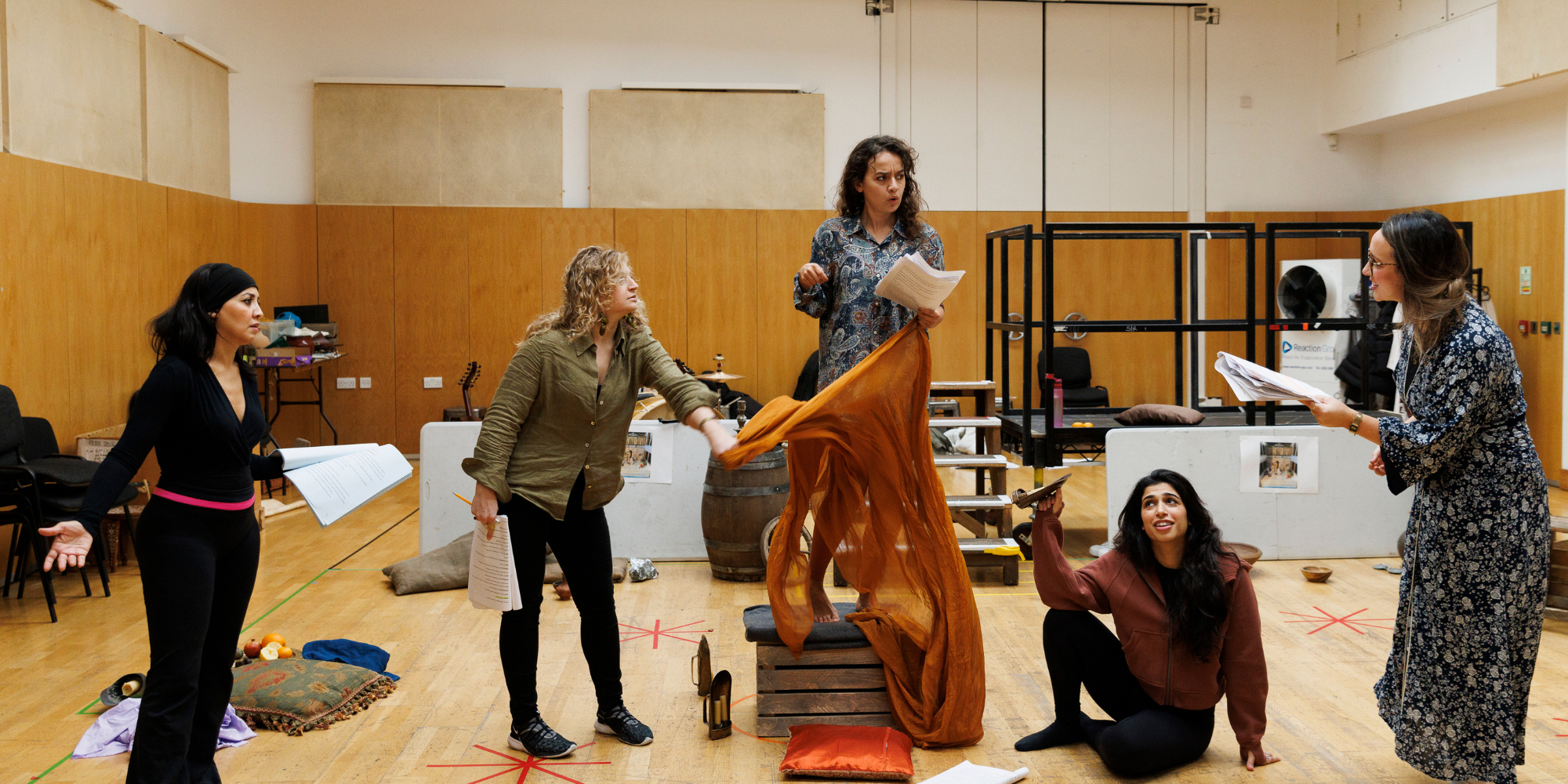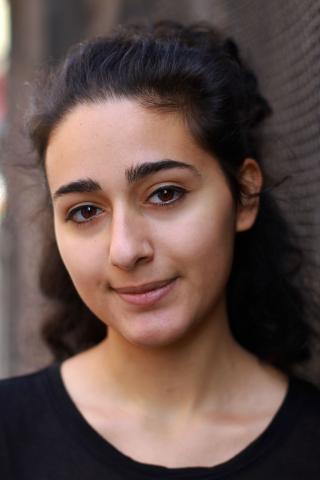Posted: 28 November 2022
Hakawatis: ‘It’s overflowing with women and their joy, their pain, their sexuality, their anger and so much more.”

HAKAWATIS: Women of the Arabian Nights opens this week (1 December) at the Sam Wanamaker Playhouse. We sat down with theatre-maker, Assistant Director and incredible human, LAYLA MADANAT, and asked Layla a few questions. Read on!
How’s rehearsals going?
In a room as open, generous and powerful as this, it’s a delight to come into work every day. From Day 1, the entire team, led by the incredible Pooja Ghai, had come together to create a space that was compassionate, brave and supportively challenging to explore this piece together. We’ve come at the piece from all angles, and I think it shows in the way it’s come to life.
In your opinion, why is a piece like HAKAWATIS important today – and especially in a space like the Sam Wanamaker Playhouse?
It’s overflowing with women and their joy, their pain, their sexuality, their anger and so much more. It’s rare enough to see any women on stage exploring such a raw spectrum of emotion, but for women from the SWANA (South West Asia and North Africa) region, who a few years ago were less represented than aliens on our screens, it’s especially revolutionary. This is all amplified in a space like the Sam Wanamaker Playhouse, nestled in Shakespeare’s Globe, which this Western society has placed on a pinnacle of what it means to tell stories. The women in Hakawatis escape through stories, and how often do we just get to disappear in storytelling in its purest form? It’s so special.

Tell us a little bit about your directing journey?
My journey has not been linear (and I hope it stays this way). I began to explore directing at University as many do, but then decided to take a step towards working in NGOs through a Master’s in Gender and International Development. Even as I worked in a whole range of other sectors, political lobbying, charities, classical music, I’ve never stopped exploring storytelling in theatre.
You were shortlisted for the 2021 Evening Standard Future Theatre Fund in the Directing/Theatre-Making category. What does the future of theatre look like to you?
There are seeds being planted everywhere, and growth on decades-old work by companies like Tamasha, that are moving theatre towards a more equitable and therefore more exciting place to be. One way I’d really like to see more change is in how we work with artists and their work from abroad, British theatre still is more inward looking than it could be. Two answers really – and they depend on the government we have. If we don’t want British theatre to grow dull and even more competitive for those in it, we need to look not only to new leadership in the country, but the way theatre is valued and funded.
For any aspiring directors out there wanting to break into this field, what would be your one piece of advice?
Connect with others! It’s so hard to break out of the mindset of competition that is bred into us, but there is enough space for us all. The moment you start seeing your peers as collaborators and companions on the journey, as opposed to your competition, things become much more exciting and way easier.
What’s next for Layla Madanat after HAKAWATIS? Any upcoming projects you can share with us?
I’m so excited about this one – I’m co-producing Mahad Ali’s My Brother’s Keeper at Theatre503, working with Compass Collective. It’s a really special, intricate and rich piece about building community in a seaside British town hostile to immigration. I cannot wait to see this process through.
And finally, why should someone come and watch HAKAWATIS?
It’s magic – these women are bringing pure magic to the Sam Wanamaker. I want everyone to share this experience with us, and feel the power of stories to transport, and even change, us.